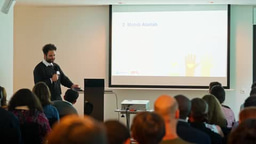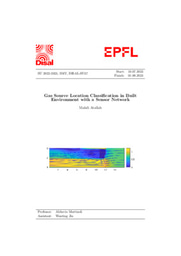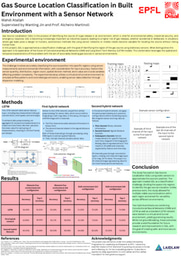LiA output
Introduction
This summer, I had the opportunity to complete my Leadership in Action with Simplemap, a startup dedicated to making solar farms more viable as an energy source. Simplemap utilizes drones to detect failures in solar panels efficiently and quickly.
Project Definition
For my project, I focused on automating various aspects of Simplemap’s workflow to streamline the detection of issues in solar farms, making the process more efficient. Additionally, I contributed to the practical side by assisting with data collection essential for identifying problems within the solar farms.
Challenges and Learning Experience
Language Barrier
I had not learned much Spanish before arriving in Chile. While this was not a significant issue in the workplace, as I worked with English-speaking colleagues, daily interactions were more challenging, particularly given that Chilean Spanish is quite distinct, even for native Spanish speakers.
Technical Challenges
My project required me to dive into new concepts and tools from the field of computer vision, which were unfamiliar to me. Additionally, I had to expand my knowledge beyond my primary field, particularly in working with georeferenced data, which plays a significant role in mapping technologies.
Cultural Learning
During my time in Chile, I learned a great deal about Chilean culture and how it contrasts with the rest of Latin America. Since many members of the startup are Venezuelan, I also had the opportunity to learn about Venezuelan culture and explore broader elements of South American culture. Despite our differences, I was struck by the many similarities between Latin American and North African cultural backgrounds.
Learning about the Solar Industry
Throughout my project, I gained valuable insights into the process of building and operating solar plants. I learned about the most common types of issues faced in solar energy systems and how to detect them. I also explored where automation is beneficial and where manual intervention remains essential. My practical role focused on gathering data used to identify these issues.
Leadership Development
I had the privilege of discussing leadership with the founder of the startup, who shared several key lessons:
- Leadership During Difficult Times: It is important to be honest with your team when challenges arise. However, if a problem can be resolved quickly without outside help, it’s often unnecessary to communicate it, as doing so might cause unnecessary concern.
- Assessing Needs Before Taking Action: A solution is only as valuable as the problem it addresses. If the need for your solution is too small, it may not be sustainable to devote your time and resources to it. Additionally, each country or region operates with different systems; what works in one place may not work in another. Sometimes, it’s easier to start a project in a different country, depending on the circumstances.
- Adjusting Your Course: Reality often deviates from expectations, and it’s important to adapt quickly. Sometimes, this requires making drastic changes to how you operate. Even if your approach isn’t perfect, it’s better to take action and improve along the way.
- Delegation and Outsourcing: Delegating tasks is essential for leadership—not just within your team, but also by outsourcing certain operations. Doing so allows you to focus on what truly matters.
- Early Challenges: Achieving your initial goals may be the hardest part of your journey, but once those milestones are reached, the path becomes smoother.
Conclusion
This experience has been immensely informative, both in terms of the technical skills I’ve developed and the leadership insights I’ve gained. It has also broadened my understanding of different cultures. I am deeply grateful to the Laidlaw Foundation for this opportunity, and I would like to extend my sincere thanks to the team at Simplemap for their unwavering support and guidance throughout this project.



Please sign in
If you are a registered user on Laidlaw Scholars Network, please sign in